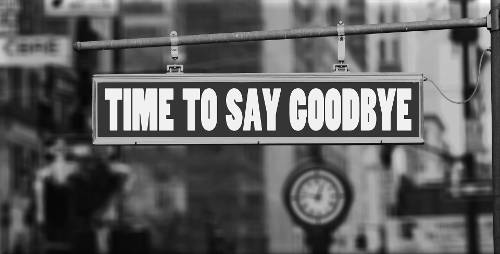 As mentioned, we do our thinking inside our prefrontal cortex, the large lobe behind our forehead. Conscious fixation is the ability of the rational thinking mind to become completely engrossed, absorbed, and preoccupied with a single subject, issue, or train of thought.
As mentioned, we do our thinking inside our prefrontal cortex, the large lobe behind our forehead. Conscious fixation is the ability of the rational thinking mind to become completely engrossed, absorbed, and preoccupied with a single subject, issue, or train of thought.
While subconscious conditioning somehow limits the duration of a cue-triggered crave episode, conscious fixation can last as long as our ability to maintain concentration and focus.
We just reviewed 50 common use rationalizations. How will you react when thoughts of "wanting" to use begin bantering about inside your mind? Will you fixate upon them or instead seize the moment as an opportunity for conscious healing?
Wanting's arrival presents a golden opportunity to reflect upon both wanting's source, our pile of old wanting satisfaction memories, and the use-thinking they provoke.
Don't worry. Neither fixation nor analyzing it can harm you. As Joel often reminds us, it's impossible to relapse by thinking. Only use can destroy our healing.
Clearly, we cannot erase thousands of old wanting satisfaction memories or the justifications we invented to explain creating yet another. What we can do is use honesty and insights to diminish or destroy their influence upon us.
Instead of an addict's use memories becoming fuel for fixation and relapse, truth and understanding can transform them into almost laughable reminders of the prison we once called home.
While still using, how many of the 50 rationalizations we reviewed did you reach for and rely upon? It's likely there were others.
Instead of allowing a use justification to survive and replay over and over, time after time, see it's next arrival as a teachable moment, an opportunity to expose it to honest light.
As for all the old use memories supporting the use justification, it's an opportunity to recast hundreds or even thousands of similar dependency memories all at once.
As when ending any long, intense, and extremely abusive relationship, despite the possibility of a few good qualities, the sooner we're able to see the entire relationship for what it was, the quicker we can let go and move on.
We accelerate letting go by repainting and recasting memories reflecting our attractions to use as chemical servitude, by seeing our diminished well-being as harm and abuse, by viewing breaking free as good and wonderful, and staying free as entirely do-able.

Still, there may be one or more elements of junkie thinking that seem difficult to let go of. There may be one or more attractions that truth and insight fail to impact.
If so, accept them, for now, and move on. But in doing so be sure to re-frame them as part of the bigger dependency picture.
If willing to be brutally honest about the prison cell we once called home, little will remain to embrace. Like eyes on a potato, any lingering romantic use rationalizations will be surrounded by tasty and edible truths.
The concern is that once home and residing here on Easy Street that, like fertilizer, complacency can cause those remaining eyes to begin to sprout, grow, and eventually destroy the tastiness surrounding them.
Staying focused on dependency's bigger picture -- that one equals all -- helps keep their influence in perspective.
Assisting Others
We sometimes encounter long-term ex-users whose remaining use rationalizations are beginning to combine with complacency to elevate risk of relapse. Some will disclose that they still think about using and have recently found themselves doing so more frequently. A few questions may aid in helping them regain their perspective.
- When was the last time you experienced an urge to use?
- What thoughts went through your mind?
- How long did it last? How intense was it?
- How long before that urge did you experience your previous urge?
- If you don't mind sharing, what did you like most about using?
- What did you dislike most?
- Do you understand that for ex-users that there's no such thing as just one?
Those still in the first few days of recovery would laugh at what the long-term ex-user considered an "urge." Normally it's a brief passing thought that lasts seconds and is quickly abandoned.
Digging deeper may allow identification of the particular rationalization that was likely never directly confronted during recovery. Unchallenged, like cancer, its significance now grows.
"Experts" refer to nicotine dependency as a "chronic relapsing condition." But if it doesn't need to occur, is it really?
Still, you'll sometimes meet current smokers who'll tell you that they once stopped for 5, 10 or even 20 years and then smoked one, and soon found themselves smoking more than ever.
Many can recall the use rationalization they fixated upon in the seconds before relapse. Amazingly, some still believe in it even though it cost them their freedom.
Imagine for a moment that once here on Easy Street that you've brought one or two remaining romantic use notions with you. If so, consider wrapping them in this often-quoted recovery mantra:
thinks about using, than a user
always thinking about stopping."
All rights reserved
Published in the USA
